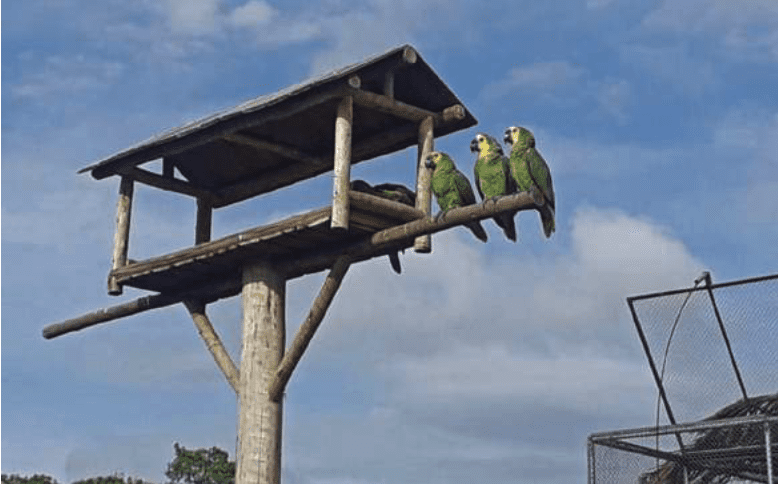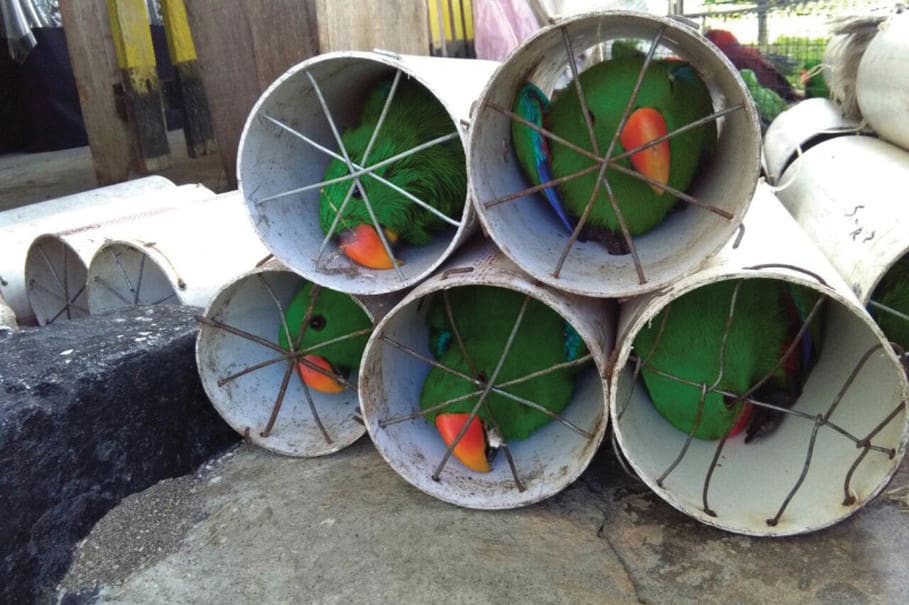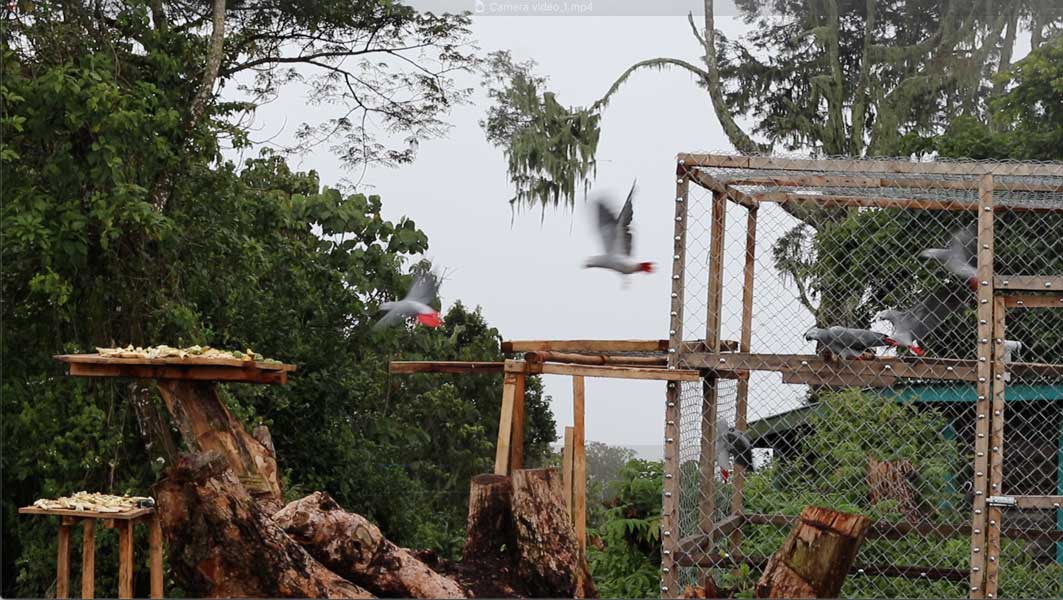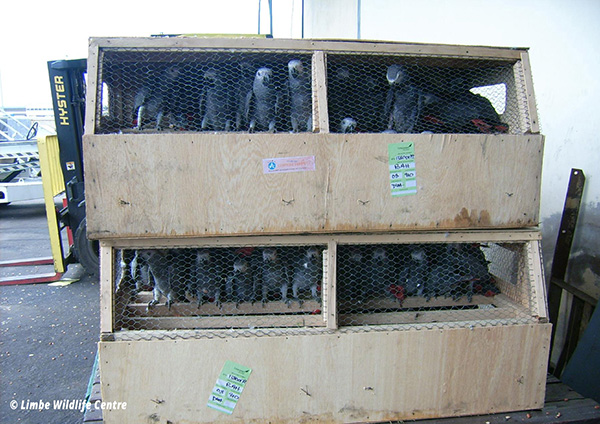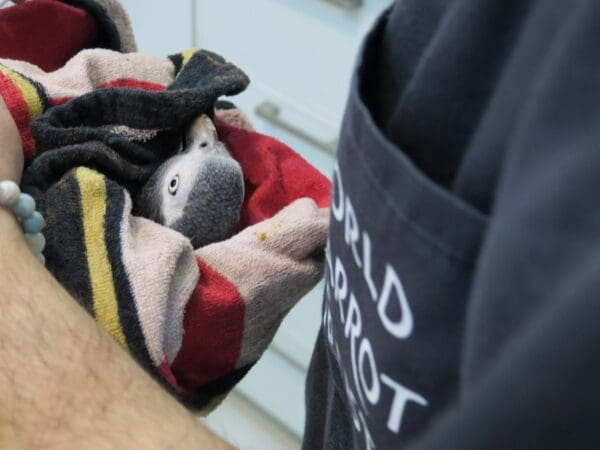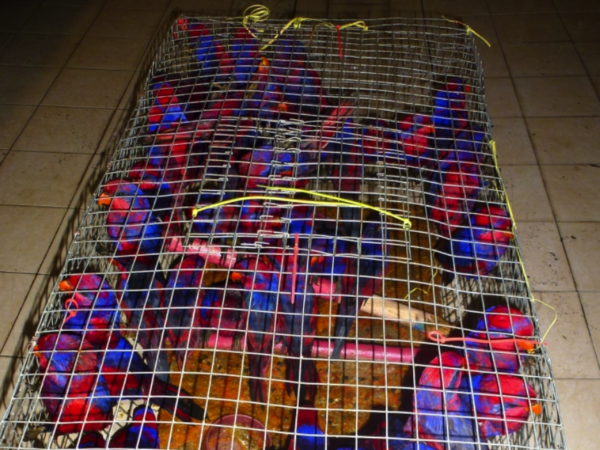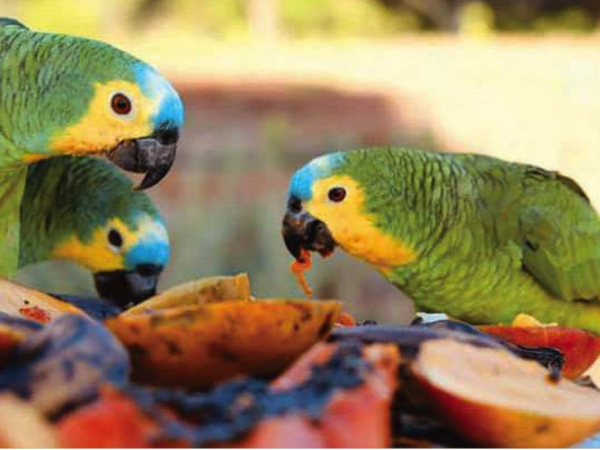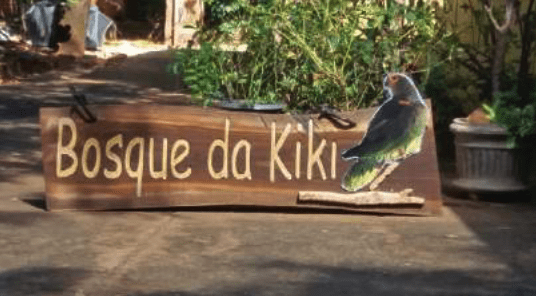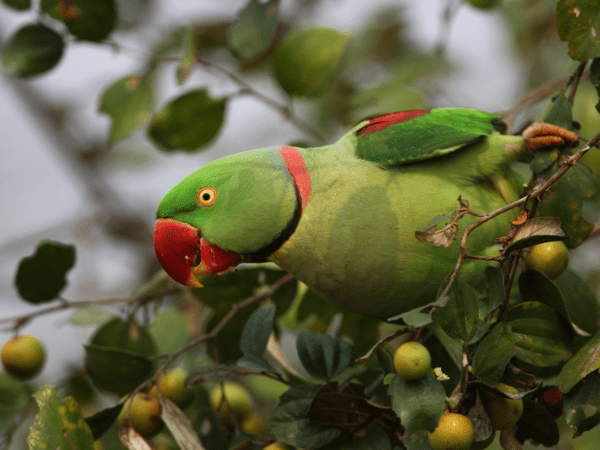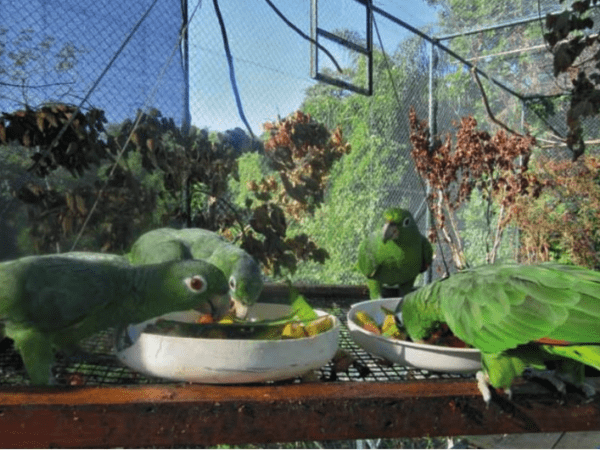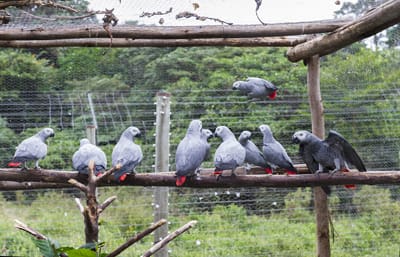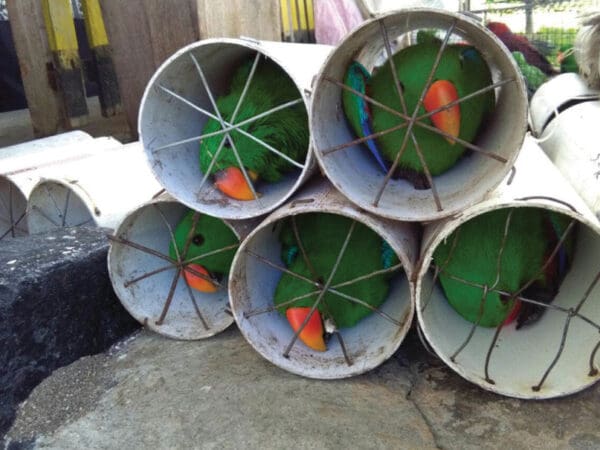FlyFree Initiative
About
Parrots have been captured for the companion bird trade for many decades. Extensive research has shown that trafficking has caused the suffering and loss of hundreds of thousands of parrots. Over 50% of birds die during capture and transport; those that survive may spread disease to companion birds and people. In the wild, populations are often severely depleted, species' genetic diversity lost due to adults being trapped, and nest sites destroyed to get to chicks.
Actions
In response to the urgent need for action, the World Parrot Trust launched the FlyFree initiative in 2009 to highlight the destructive practice, gaining worldwide support to end it. The WPT, through FlyFree, provides funding, logistical and technical support for front-line workers enforcing wildlife laws, confiscating parrots from traders, providing emergency care for parrots and releasing birds back to the wild.
In addition, the initiative supports rescues and sanctuaries in India, Indonesia, Cameroon, Kenya, Nigeria, Liberia, the Democratic Republic of the Congo, South Africa, Sierra Leone, Mexico, Guatemala, Honduras, Belize, Costa Rica, Bonaire, Bolivia, Peru and Brazil.
PROJECTS
Find out what projects the World Parrot Trust is supporting through the FlyFree Program.
